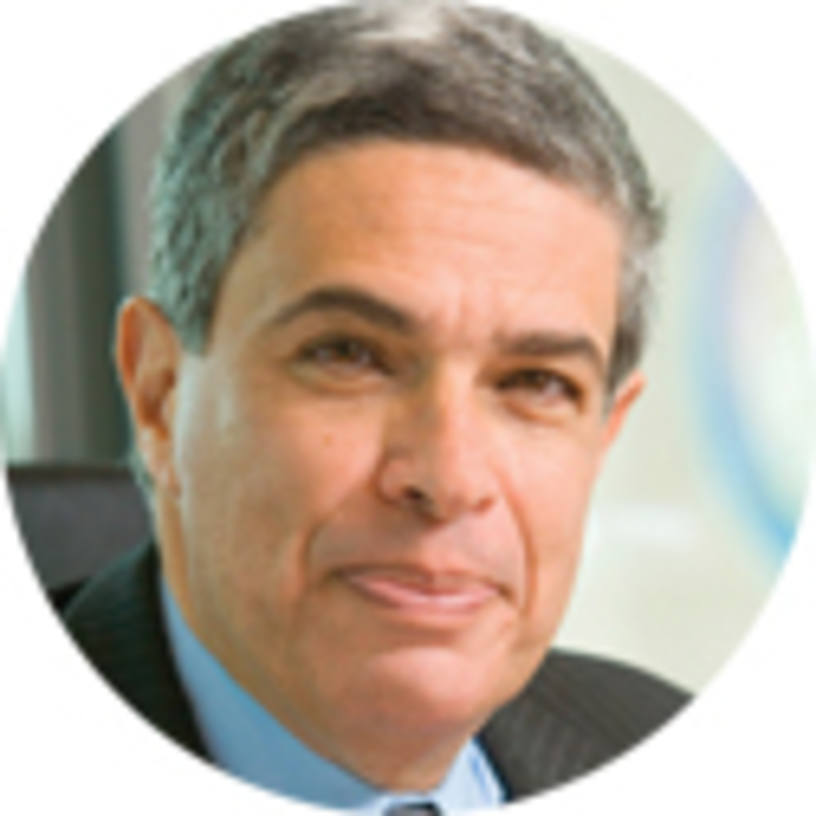Financial services is the largest contributor to Bahrain's economy, which makes it different from the other GCC countries, where hydrocarbons is the dominant sector. It also means the country has been more exposed to the global financial crisis than anywhere else in the Gulf.
Among the most prominent of Bahrain's bankers is Adel El-Labban, chief executive of Ahli United Bank. According to The Banker's rankings, AUB is the fourth largest bank in Bahrain and the 27th largest Arab bank in the world.
Mr El-Labban distils into just a few words an explanation of how the country's banks are faring in a world still reeling from the financial crisis. "The degree of impact varies according to the business model each bank follows," he says. "Banks with large international exposures, particularly if they traded in structured products or derivatives, have felt the pain, and this was reflected in their results last year and to a lesser extent this year up to now.
"Banks with a strong real estate focus, primarily on the Islamic banking side, have been impacted by the sharp decrease in property values and returns on development projects. However, banks that are more balanced in the configuration of their businesses, and have not been over-exposed in either of these two broad segments, have fared better."
AUB falls into the latter category. It is a fully fledged and diversified commercial and investment banking group, providing wealth management, retail, corporate, treasury and offshore banking services, mainly in the Gulf, but also in Egypt and the UK. In August, it reported a net profit of $143.5m for the first half of the year, compared with $211.7m for the same period last year, a drop of 32%. However, core operating income was up 2.2% to $382.4m, after excluding exceptional gains made from investment sales - a considerable achievement against the backdrop of a slowing economy and regional corporate failures. Profit for the whole of 2008 was $256m, 14% down on 2007.
Problem clients
Mr El-Labban admits that AUB has taken a direct hit from the troubles of the Algosaibi and Saad groups, which owe regional and international banks about $24bn. AUB has a large exposure to these two companies on which it has made a loan loss provision of 65%. This provision accounts for nearly all the $128m provisions it made in the second quarter of this year.
"I am sure we are the highest provided bank against these groups barring maybe some small banks that have small amounts and have taken a full provision on them," he says. "It is our intention to increase provisioning further during the year if the situation is not clarified."
Pre-emptive action
Confronting problems early and head on is Mr El-Labban's style. "We started reacting to the probability of a slowdown in the second quarter of 2008," he says. "Those were still rosy times in the Gulf. We tightened our loan-to-value criteria for lending and completely exited the property markets. We also amassed funding - if you look at our balance sheet you see a regular increase from the middle of last year to now in the size of deposits we have taken from clients.
"We essentially went into a prudent defensive mode with a limited, very selective appetite for writing new risk, focusing on long relationships. We have also taken a very liquid stance, and were quite liquid just before the Lehman crisis."
AUB has grown mainly through acquisitions rather than organically. In the past year that strategy has changed. "With increasing levels of risk we have resisted all temptations to go 'bottom fishing', because in the absence of clarity it is simply too dangerous," he says. "You need the dust to settle and the pain to be clear before you can ascribe values to any potential targets and attempt to make an acquisition.
"So we have focused on organically tightening our lending criteria, and reducing our loan portfolio, which has gone down this year. But on the offset, we have increased our investment in securities, moving out of corporate exposures and into sovereign and quasi-sovereign regional exposures."
The cost-income ratio has been cut, from 32.4% in the first half of 2008 to 28.3% now. "It's a bit like when you are advised to lose weight for health reasons - when a banking institution faces a crisis, the lighter you are in terms of costs the better able you are to cope."
The more careful strategy does not mean all deals are off. The bank signed a joint venture with Legal & General at the height of the crisis to sell life insurance, conventional and Islamic, across the region, and that operation is up and running. AUB is also converting Bank of Kuwait and the Middle East, in which it has a 75% stake, into a fully fledged Islamic bank. The conversion will be completed in January.
"Wherever there are good opportunities that meet our core strategies, we will pursue them," concludes Mr El-Labban.












